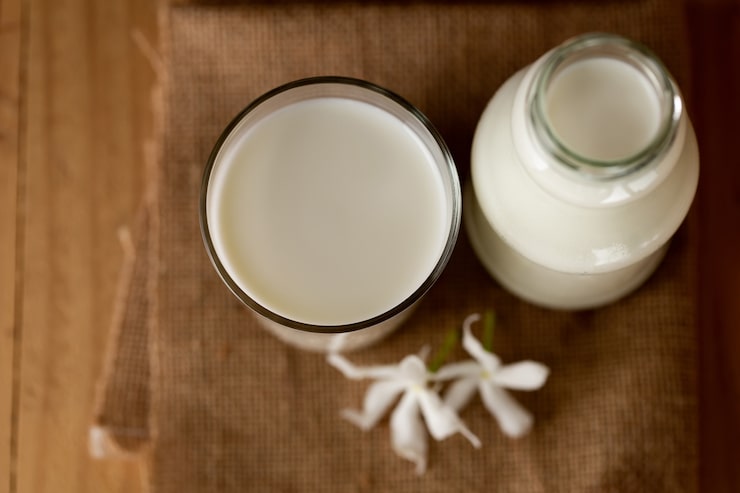Curious about probiotics? You’re in good company. More people are turning to these helpful bacteria to support gut health, so we’re taking a close look at Yakult and Actimel—two of the most well-known probiotic drinks.
They may seem alike at first glance, but Yakult and Actimel differ in important ways: they use different bacterial strains, taste different, and have different nutritional profiles. Below we break down those differences to help you choose the one that might suit you best.

Yakult and Actimel: origins and basics
Yakult comes from Japan. It was developed in the 1930s by Minoru Shirota, who gave his name to the strain it contains: Lactobacillus casei Shirota. Actimel appeared much later, developed in the 1980s and launched commercially in Belgium in 1994. Its name comes from the Flemish “Actieve melk,” meaning “Active Milk.” Actimel is sold as a type of yogurt drink.
Both are popular for their potential gut and immune benefits, so in that sense they’re similar. The main difference lies in the probiotic strains they use: Yakult contains L. casei Shirota, while Actimel uses L. casei Danone (also called L. casei DN114001). Both belong to the lactobacilli group, which naturally live in the human gut and help ward off harmful bacteria. Genetically, the strains are closely related, and studies show they perform similar probiotic roles.
Taste and ingredients
Yakult tends to be sweeter, while Actimel has a more yogurt-like tang.
Typical Yakult ingredients include water, reconstituted skimmed milk, glucose-fructose syrup, sugar, maltodextrin, flavorings, and L. casei Shirota. Actimel Original is made from yogurt (milk, skimmed milk) with pectin, artificial sweeteners, milk mineral concentrate, vitamins B6 and D, and L. casei Danone. Flavored Actimel versions add natural flavors and fruit purees; Yakult is usually lightly flavored with vanilla and lemon.
Nutrition comparison
Actimel Original has about 120 mg of calcium per 100 g, while Yakult contains only trace amounts of calcium (not listed on its label). Actimel also provides more protein—around 3 g per 100 g—versus about 0.8 g in Yakult. Actimel is fortified with vitamin B6, which Yakult does not include.
Sugar is a key difference: Yakult has a much higher sugar content (about 13.6 g per 100 ml) because it uses added sugar, while Actimel Original has around 3 g per 100 g, thanks to artificial sweeteners. Some of Yakult’s sugar comes from natural lactose, but its total sugar is still much higher, which matters if you’re watching sugar intake. If you like Yakult’s flavor but want less sugar, Yakult Light offers about 4.4 g per 100 ml—closer to Actimel’s level.
Health effects by strain
Different probiotic strains can have different health effects, so which strain you choose matters.
Research suggests L. casei Shirota (Yakult) can help balance gut bacteria, improve gut health, and may help prevent some infections and even certain cancers. It may also help reduce anxiety by influencing stress responses.
Actimel’s L. casei DN114001 has shown strain-specific benefits as well, including reducing the risk of antibiotic-associated diarrhea in adults. It may also help reduce the risk of upper respiratory tract infections in older adults, improve some inflammatory markers, and lower the chance of common infections in stressed people like shift workers.
Both drinks can be useful in easing IBS symptoms, though responses can vary. If you have IBS, trying both to see which suits you may be the best approach.
Specific conditions
Thrush: The most effective probiotic strains for thrush tend to be L. reuteri RC-14 and L. rhamnosus strains. However, studies suggest L. casei Shirota (Yakult) may also have antifungal activity against Candida, so Yakult could be helpful if you can’t access those specific strains. Actimel does not contain the strains most associated with thrush treatment, making Yakult the more likely choice for this condition.
Constipation: There’s more evidence supporting the types of probiotics found in Yakult for easing constipation; Actimel has fewer studies in this area. Many gastroenterologists recommend strains similar to those in Yakult for constipation relief.
IBS: Both drinks may help with IBS symptoms, but evidence is limited for their specific strains. Other L. casei strains show promise for improving gut barrier function. Again, personal trial may be the best way to know which works for you.
Using them together
Yes—you can drink Yakult and Actimel together. Combining different probiotic strains may support immune and gut health, but keep in mind that some strains can compete with or inhibit others. To reduce the chance of interaction, it’s a good idea to space them out by a few hours.
Yakult and Actimel vs. Kefir
In terms of overall nutrition, both Yakult and Actimel are generally outpaced by kefir. Kefir typically offers more protein, calcium, and potassium and tends to have less sugar and fat when made from plain milk. If you want a more nutrient-dense probiotic drink, kefir is often a stronger choice, though it tastes and feels different.
Bottom line
Yakult and Actimel are both solid probiotic drinks with different strengths. Yakult may be better for issues like thrush and constipation thanks to its strain, while Actimel offers more calcium, protein, and added vitamins. If you want a richer nutritional profile overall, kefir is worth considering.
Choose the product that best matches your health goals and taste preferences. Regular use as part of a balanced diet can support your gut and overall well-being.
Related articles:
Is Yakult good for the immune system?
Is Yakult Good for IBS?
Is Yakult Good for Weight Loss?
Is Actimel Good for You?
Benecol vs Actimel